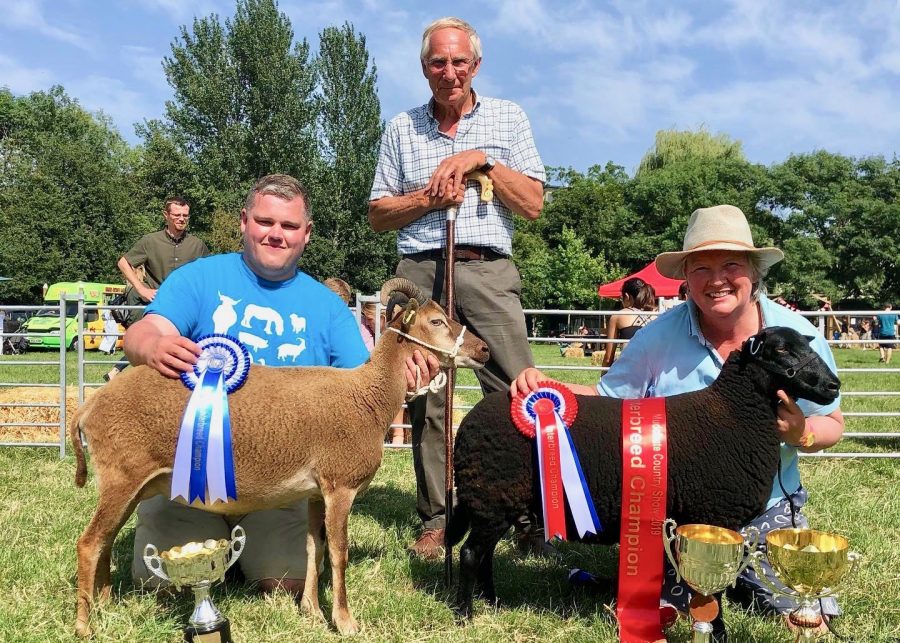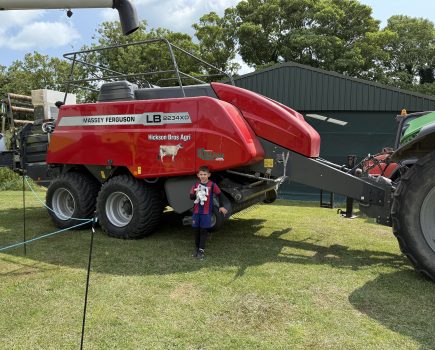Last month’s sheep topics generated the accusation (somewhat tongue in cheek, I hope) from a friend and fellow sheep breeder that it was a bit of a rant about novice sheep keepers and the shameful deficit of sheep knowledge and understanding demonstrated by some. Maybe it was a minor rant, but no apologies; I know none of us are perfect, but any action that results in a significant compromise of sheep welfare is simply wrong, whether that be deliberate, out of ignorance, poor husbandry or a genuine mistake. The latter is forgivable, the other three are not, regardless of flock size.
Some may have interpreted it as being targeted at small flock keepers, which is not the case, even though many novice sheep breeders fall within this category. My view is simply that it is unacceptable for any sheep keeper, small or large, to keep any number of sheep without first acquiring some knowledge of what they are embarking on. “In at the deep end” is just not good enough. It is this sort of attitude – “how difficult can it be?”, “anybody can do it”, that has contributed to many of the issues surrounding sheep worrying by dogs – people keeping an animal without any meaningful concept of what they are doing; sadly many of them cognitively inferior to their charges.
I do wonder, though, just how many sheep keepers of any sized flock have actually read, or even seen, the Code of Recommendations for the Welfare of Livestock: Sheep, which quite clearly states in the preface: “Any person who keeps animals, or who causes or knowingly permits animals to be kept, shall not attend to them unless he has access to all relevant statutory welfare codes relating to the animals while he is attending to them, and is acquainted with the provisions of those codes.“ I’m aware that they are only recommendations and that there must be room for common sense, but they are recommendations drafted within a framework of legislation; and, before anyone says that the Farm Animal Welfare Committee (FAWC) is just another bunch of “animal rights do gooders”, it is a body comprised of reputable representatives of both livestock farming and the veterinary profession.
In truth many smallholder sheep keepers are very thorough in both researching and acquiring, from other farmers, colleges, etc. some good basic knowledge and experience of what to expect of their sheep. Sadly many of the colleges, once a reliable source, have now ceased to provide, on an easy access basis such as evening classes or weekend courses, either general sheep keeping or specialist courses. It is certainly the case locally and it does a considerable disservice to the sheep industry.
While it is rather too easy to dismiss small flock owners as “hobby farmers”, it is smaller flocks that form the backbone of much pedigree breeding across the country, and I suspect that many agricultural show societies would have sunk into oblivion many years ago had it not been for the enthusiasm and support of small flock (and herd) owners.
Numerous surveys have shown that one of the major draws at agricultural shows is livestock. They are a major contributor to footfall that ensures both the viability of shows and the generation of income which, in turn, enables their charitable efforts in supporting young farmers and helping to promote British livestock.
Showing may be relatively expensive and time consuming, and sadly many of the benefits that once arose from having a shop window, in terms of sales opportunities, are, with relatively fewer farmers attending, either significantly diminished or nonexistent; current financial pressures certainly don’t help. So all credit to those enthusiasts, many small flock owners, that continue to support shows and, while they are at it, take the opportunity to interact with our customers and gain support for our domestic producers, an important remit at such a vital time.
I have shown my own sheep for 30-plus years simply because I enjoy it. The odd rosette or two is always a welcome bonus but not the main criteria. Socially it’s good to catch up with other exhibitors and I enjoy the opportunities to interact with show visitors; if just a couple of people leave the show with a better and more positive understanding of our industry, that is a win to me, but primarily I enjoy putting forward good sheep to be shown and judged.
In truth I attend rather more shows now as a judge than I do as an exhibitor, having been a Lleyn Society judge for a number years; but life can be rather serendipitous. Several years ago I was invited to judge at the Mud Chute City Farm’s annual show. I gladly accepted, thinking it would be relatively straightforward, only to discover on the day that there were some 120 plus sheep forward in 16 classes, many representing rare and minority breeds and only one judge. Anyway, to cut a long story short it turned out to be a thoroughly enjoyable day and a steep learning curve. I must have done something right as it has led, subsequently, to quite a number of invitations to judge rare and minority breed classes at shows across the country.
I enjoy judging as much as showing and have in recent years been fortunate to judge classes, ranging from Lleyn to rare breeds to wool on the hoof, at shows from Cornwall in the west to Norfolk in the east and Yorkshire in the north, providing opportunities to meet and enjoy the company of sheep breeders from all over the country, with the additional privilege of judging some very good sheep (and a few not quite so good). Plus, of course, judges are normally quite well looked after and fed, which is a nice bonus.
While judging it is interesting to listen to comments from the outside the show ring; sheep judging is a bit like sheep keeping, there are lots of people who seem to think that it is easy. Many seem to have the uncanny ability to accurately judge every sheep in every class from a good 10 metres away, even without the benefit of laying a hand on a single sheep. Inside the show ring, however, one has the satisfaction of knowing that the judge is always right on the day; not all exhibitors will agree, but generally, for those that know what they are doing, there will be an understanding as to why they occupy the position they do in the final line up. Criticism tends to come from the experts on the other side of the show ring fence.
For more like this, sign up for the FREE South East Farmer e-newsletter here and receive all the latest farming news, reviews and insight straight to your inbox.







